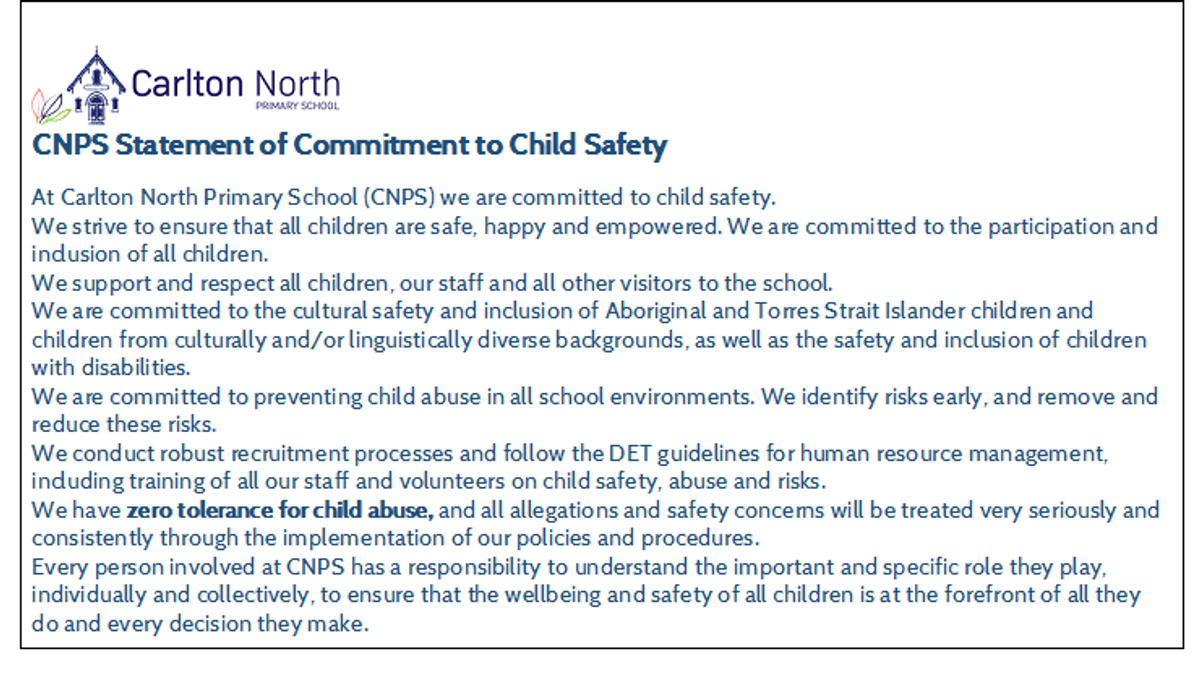
Carlton North Wellbeing
SHINE January Intensive Multidisciplinary Program
The SHINE January Intensive Multidisciplinary Program is a renowned intervention program run for 26 years by the Andrew Dean Fildes Foundation (SHINE). It is free for families and funded through philanthropy. It attracts health professionals, educators, and families from across Victoria, including regional areas.
SHINE employs highly qualified and experienced professionals from a variety of disciplines including speech pathology, occupational therapy, psychology, and art therapies (art, dance, drama, music) who use evidenced-based practices and work together to support children. Children are involved in fun and engaging activities that target their learning/intervention goals. The SHINE staff work with university students studying health degrees to assist in program delivery.
In 2023, the January SHINE Program will be delivered at St Kilda Primary School in St Kilda Monday-Friday over 2 weeks, between the 9th - 20th of January. Successful applicants will be invited to attend for one full week (Monday-Friday) 9am-3pm each day (expect the last Friday when the program finishes at 1pm).
In order to be eligible to attend a program, a child must:
- Be of school age and have an appropriate assessment, diagnosis, or known goals that can be worked upon during the program
- Have an IQ in the normal range (70 or above)
- Have hearing and vision within the normal range (or have glasses or hearing aids that allow this)
- Not have a major physical impairment
- Not have a major mental health or behaviour problem
Note: Priority will be given to vulnerable families and children experiencing disadvantage in relation to their diagnosis and social/economic/family situation
Below are some of the programs offered at the upcoming January program. Please distribute the Expression of Interest Form (attached) to families who you believe would benefit – the form contains further information
More information at the SHINE website: www.shine.org.au and funding partner https://www.variety.org.au/vic/variety-shine-program/
Program types offered at the SHINE January Intensive Multidisciplinary Program
- Sensory/self-regulation program using Drama Therapy
- Social skills program using Drama Therapy
- Lego therapy program – supporting conversation and social skills
- Narrative program – supporting the telling of stories to support grammar/reading/writing
- Writing program – supporting handwriting
- Play therapy program
Sensory/self-regulation program using Drama Therapy
Run by a Drama Therapist, the sensory and self-regulation group program will support the development of a child’s ability to understand and manage their behaviours and reactions. Using evidence-based practices the program will incorporate elements of art, dance and music to increase engagement and participation of children. Self-regulation skills will support a child’s ability to develop impulse control, regulate reactions to strong emotions and focus on tasks.
Social Skills using Drama Therapy
Run by a drama therapist, the social skills group program will incorporate art, dance and music to support the development of interactions at school. Over the course of a week, children will participate in a range of creative activities, role plays and reflective practices with the aim of exploring and developing social skills whilst in a supportive environment. Topics such as team-building, listening, anger and/or anxiety management, overcoming challenges, resilience and self-reflection will likely be addressed through creative and imaginative processes over the course of the week.
Lego Therapy Program
LEGO Therapy is a naturalistic, play-based social skills program that uses Lego as its main activity. It is designed to improve school-age children’s (ages 7;0 to 14;0 years) social competence (LeGoff, 2004; LeGoff & Sherman, 2006). This intervention approach targets a variety of aspects of social interaction, including joint attention, turn taking, initiating and maintaining conversation, conflict resolution/problem solving, asking for assistance, friendship building, teamwork/collaboration, and functional use of language for social purposes. LEGO Therapy considers a child’s natural interests, using interactive LEGO play to motivate learning and change behaviour. This approach to intervention has shown statistically significant improvements in children’s language development, verbal and non-verbal communication, for children with conversational skills problems and those with High Functioning Autism Spectrum Disorders. The students are matched for age and usually participate in a group of 3. The program will be supported and run by a speech-language therapist.
Narrative Program
The Narrative program is aimed at assisting children who need help to tell stories (or write stories) at school. Narrative work is useful for children learning to sequence, learning the parts of telling a story, and
learning to tell a fully developed story. The work in the narrative program can entail listening to stories and answering questions or retelling a story or developing your own stories. This is a critical skill in school. Some of the programs we use include: Story Building, Story Grammar Therapy, Story Champs, SKILLS Program (Supporting Knowledge in Language and Literacy). This program is offered by a Speech-Language therapist.
Writing Program
Delivered by an occupational therapist, the program is aimed at helping children who have difficulty with handwriting. Each child’s program is set up individually. The goals will vary for each child. Some of the goals might be to; increase fine motor skills, holding the pencil properly, writing letters and words neatly, using appropriate spacing, generating good ideas to write about, organising your ideas, selecting the best words to use, using a range of grammatical structures and use of sentence fluency, and use of writing conventions (caps vs small, punctuation, & proper spelling). These programs may also work on text types like recounts, information reports, exposition, explanation, description, procedure, discussion, response, or narrative writing. These programs may also entail the use of keyboarding, use of computers, and alternative writing
programs for using speech to text for writing.
Play Therapy Program
The play therapy program will be run by a play therapist and supported by Occupational Therapy input. It will draw upon the evidence-based extensive research work by Karen Stegnetti to develop spontaneous pretend/imaginative play in children which will foster a child’s ability to play independently and with peers. Pretend play promotes language and social development and the emotional integration of a child’s experiences.
Kids Helpline Services
The Kids Helpline is a 24-hour telephone service that is available for young people (aged between five and 25) who need advice, counselling or just someone to talk to – no problem is too big or too small. You can talk to the counsellors about anything and they will not criticise or judge you. You can also contact the Kids Helpline by email or online.
Services provided
- Telephone helpline
- Advice or counselling
- Online counselling
- Telephone counselling
- Help for young people
- Referrals
Eligibility
Available throughout Australia to all residents or visitors
How to access
To contact Kids Help Line
- Call 1800 55 1800
- Visit the Kids Help Line website
The National Relay Service (NRS) is available to help callers with a hearing or speech impairment. For:
- TTY users, call 133 677, then ask for 1300 664 786
- Speak and Listen users, call 1300 555 727 then ask for 1300 664 786
- Internet relay users, connect to the National Relay Service (NRS), then ask for 1300 664 786.
The Translating and Interpreting Service (TIS National) is available (24 hours, 7 days) for callers who speak other languages. Call 131 450.
If you would prefer to discuss your health or treatment in a language other than English, an interpreter can be arranged for you at no cost. Interpreter services are also available free of charge for people with a speech or hearing impairment.
Costs
Calls are free from all phones.
Website
Support for Parents and Carers
Parentline Victoria 13 22 89
Parentline is a statewide telephone counselling and support service for all Victorian parents and carers of children from 0-18 years. Experienced social workers, psychologists and family therapists can give you counselling and information around a wide range of parenting issues. Parentline aims to:
|
Services provided
- Telephone helpline (available 8am to 12 midnight – 7 days a week, every day of the year).
- Expert parenting advice and support from qualified and experienced counsellors.
- Confidential and anonymous advice and calls are not time limited.
- Ring as often as you need, and you can ask to speak to the same counsellor.
- Advice on issues such as child behaviour and development, family relationships, education, bullying, living with teenagers, family violence and parental stress.
- Information on parenting services in your local area.
- Secondary consultation is available for professionals who work with parents and carers.
Eligibility
Available to all Victorian parents and carers with children 0-18 years.
How to access
Contact Parentline for parenting information and advice on 13 22 89.
The National Relay Service (NRS) is available to help callers with a hearing or speech impairment. For:
- TTY users, call 133 677, then ask for 13 22 89
- Speak and Listen users, call 1300 555 727 then ask for 13 22 89
- Internet relay users, connect to the National Relay Service (NRS), then ask for 13 22 89.
The Translating and Interpreting Service (TIS National) is available (24 hours, 7 days) for callers who speak other languages. Call 131 450. We offer confidential and anonymous counselling and support on parenting issues.
13 22 89

